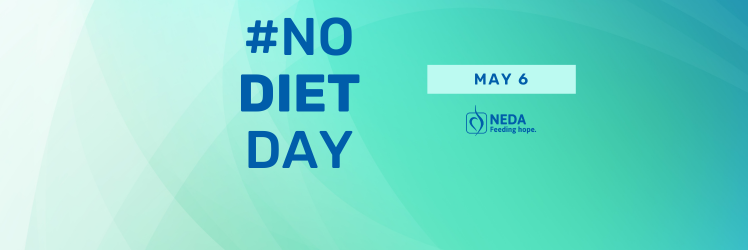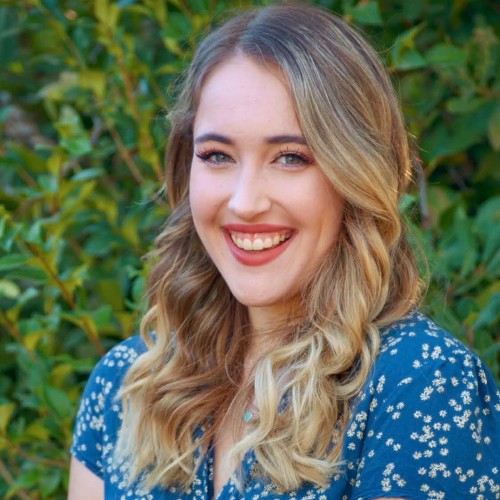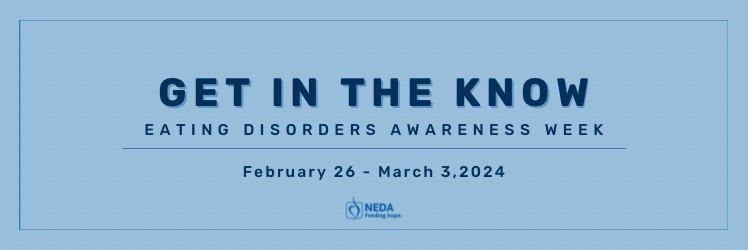I am 20-years-old. I haven’t been on a diet, or restricted my food, in over four years. I eat intuitively, honoring my hunger and my cravings. I am free.
14-year-old me would never believe that statement. 14-year-old me had gone on such extreme diets, and restricted myself to so few foods, that I was hardly even a shell of myself. By the time I turned 15, I was admitted to the hospital, and eventually a magnitude of treatment centers, due to the medical and psychological effects of Anorexia.
Growing up, my family was obsessed with what the media deemed “healthy.” I was never allowed to have certain types of food that my parents thought were “unhealthy.” I went on a diet for the first time when I was nine-years-old. After an annual checkup, my parents and pediatrician were concerned that I was overweight. (I realized years later that I was just going through puberty earlier than my peers, and had put on some weight right before getting my first period- a perfectly normal response.) My mom took me to the local community center where I was placed in a weight loss program for kids. They threatened us with the “dangers” of certain foods and essentially taught us (a group of elementary schoolers) that we would die young or get cancer if we didn’t stop eating what they classified as “unhealthy foods.”
After completing the program, my relationship with food and my body was continuously strained. I always felt “bigger” than the other girls at school, and couldn’t stand the thought of wearing short shorts or a swimsuit. I was terrified to go from elementary school to middle school because I didn’t want my peers to see my stomach while changing for P.E. in the locker room.
When multiple family members passed away when I was 13-years-old, I began dieting and cutting out food groups as a way to gain control in my life. My grandfather, grandmother, and great-aunt all died within three months of each other, and my only way of coping with the world seemingly falling apart around me was to feel hunger instead of grief. Not to mention, my disordered mind found joy in receiving compliments when my weight loss became noticeable. Between the ages of 13 and 15, I went on any diet I could find online. Eventually, I created my own diet, cutting out almost every type of food.
Being from Los Angeles, diet culture was everywhere around me growing up. I don’t blame my parents for succumbing to the pressures of diet culture. They truly believed they were doing what was best for my health when they pushed disordered eating behaviors on me: That’s the problem. Diet culture has practically taken over the media, so much so that the general public will believe anything in the name of “health,” even when these diets are extremely dangerous.
With the support of my parents and after years of therapy, I am grateful to no longer desire to diet. I encourage others to reject the diet mentality and re-learn to trust your body. It is truly empowering to eat freely!
Katin Sarner, (she/her), is a 20-year-old from Los Angeles with a passion for sharing her story through words. Her writing has most notably appeared in The New York Times, Scholastic: Choices, Pear Shaped Press, Harpur Palate, and The Hellebore. Katin is the Co-Founder and Co-President of her nonprofit initiative, The Fight Behind Our Forks , educating middle and high schoolers on eating disorders, body image, and the harms of diet culture. She is also a classical singer, most recently having performed the national anthem for President Biden and Governor Hochul of New York. Katin is currently a sophomore at Sarah Lawrence College studying Creative Writing and Music. She plans to become an English teacher and hopes to eventually advocate for education reform at a national level, while continuing her work in eating disorder awareness through her nonprofit. She owes her recovery to her wonderful parents, Robin and Jason Sarner, her close friend and Co-Founder of their nonprofit, Annabella Youmazzo, her hero and best friend, Zoe O’Neil, and the members of her treatment teams over the past six years.






